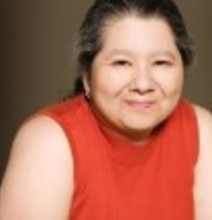If you are feeling depressed and suicidal this story is for you. I learned some very important lessons after my last suicide attempt – things I never knew before.The moral of this story is: Be careful what you wish for because you might just get it. Or, in my case, almost get it.
The last time I tried to commit suicide, I took every single pill in my house and used up every single Fentanyl patch I had in my possession. Then I laid down and waited to die. Except I didn’t die. A friend had been trying to call me for about 48 hours and when she could not reach me, she finally came over and let herself in with the key I had given her years ago. She found me. Or maybe I should say what was left of me. I went to the hospital in an ambulance where I languished for another two weeks in a coma. When I finally regained consciousness, I was in a sorry state.
You see, I had given myself what is called an Acquired Brain Injury. In my case, all the drugs damaged the left side of my brain and gave me what was¨ in essence¨ a stroke. The doctors later explained to my son that it was a demyelination of my brain nerves. It left me unable to speak, unable to read, unable to swallow. Recovery was slow and painful. I had to relearn how to do many of the things we all take for granted. I spent weeks and weeks in a wheelchair while I had extensive physiotherapy. Learning how to dress
Learning how to dress myself was an especially frustrating endeavour. I could not remember that the tag went at the back of the neck when putting on my t-shirt. Learning how to tell the difference between the right sock and the left sock was incredibly hard.And then, of course, there was the problem of waiting until my swallow reflex returned. I never learned to like a liquid diet fed through a nasal tube. My swallow reflex didn’t return for about three months.
The most terrifying thing for me was that I could not read anymore. You know how when you get to the end of a sentence, your eye has to jump down to the next sentence and go back to the beginning of the line? My brain could no longer do that. I had always been a voracious reader so the idea of never being able to read again was horrible.
The worst part, though, was not being able to speak. I had always been a very verbal person and so having that cut off from me was frightening. Because I could not use my hands, I also could not write. Even if I had been able to use my hands¨ I could no longer put any words together. I was trapped in my own dysfunctional brain.
I was lucky though. I had very good rehab. The Occupational Therapists taught me the skills I needed to know in order to regain some semblance of independent living. The physiotherapists taught me how to walk again. True I was using a walker but I could walk.Eventually after about six months I was deemed ready for discharge and sent home. I returned
Eventually after about six months I was deemed ready for discharge and sent home. I returned back to my home with my Executive Functions in shambles. My short-term memory was shot. I could not remember where I put my shoes¨ my purse¨ my dinner. I could not shop or prepare a meal for myself. I retreated into the back room of my house where I spent untold hours on my computer staring at the screen trying to make sense of my new horrible normal.I decided that I was going to try to recover as best I could and so I thought I would try to write
I decided that I was going to try to recover as best I could and so I thought I would try to write some articles for the internet. I signed up for a website called freelancer.com and started to write for them. At first I would merely copy other content and then re-write it in my own choppy words. Even though I was writing at about a third-grade level, my work sold. After about six months of doing this, I slowly started to notice that other things were getting easier. It was easier for me to put together a simple meal. I was having to make fewer lists to keep myself on track during the day. Eventually¨ I was able to branch out and started writing content for a man who had a wedding website in my home town.
It took six years of tedious¨ slow work but I began to recover. What did I learn? That the brain is an incredibly plastic organ. I had done such damage to my brain but it seemed to have been able to regenerate itself with only a little effort on my part.Eventually I decided that I wanted to start walking more than just from my living room to the
Eventually I decided that I wanted to start walking more than just from my living room to the bathroom¨,so I adopted a little dog and we went out for a walk every day. At first, we walked just around the block. After a while though, he stopped doing his business and so I added another block. Then another. Then another. Before I knew it I was walking between six and eight miles each day with him. And over a period of two years¨ I lost about fifty pounds.
But the most important thing I learned was that suicide is not the answer to my problems. Even though I attempted suicide many, many times, luckily for me I was never successful. Better to find different ways to cope with my emotional pain. I no longer consider suicide when I am feeling low. I’ve actually done a tremendous amount of work on myself and put my Borderline Personality Disorder into complete remission but that’s another story for another time. Do I still have days when I feel low? Yes, of course. Life is full of ups and downs. But the most profound lesson I ever learned was that feelings come and go. They are transitional. I have learned to wait them out while they pass. They always do. Suicide is a permanent answer to a temporary problem.
About the Author: Dee Chan
 Dee Chan was diagnosed with BPD more than 35 years ago back when the diagnosis was still fairly new and not very well understood. She has been living with it and coping with it ever since and finding ways to thrive despite it. She has been able to put it into complete remission and turned her life around completely through the practices of gratitude, forgiveness and accountability. Find out more about Dee’s work on her website bpdnomore.com.
Dee Chan was diagnosed with BPD more than 35 years ago back when the diagnosis was still fairly new and not very well understood. She has been living with it and coping with it ever since and finding ways to thrive despite it. She has been able to put it into complete remission and turned her life around completely through the practices of gratitude, forgiveness and accountability. Find out more about Dee’s work on her website bpdnomore.com.



Completely agree with the last sentence thank you and love from Paris France <3